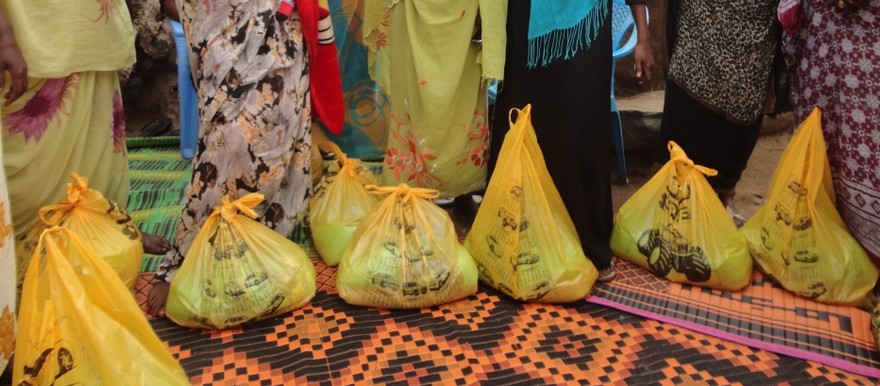The Islamic Da’wah Organization in Central Equatorial State of South Sudan has started to distribute different types of packages to Muslims as part of the coming festival of the month of Ramadan.
In Juba’s Nyakuron residential area over 90 Muslim households have received the packages, including mostly fasting Muslims fasting from South Sudan and displaced people from the areas of Darfur, Kordofan and Blue Nile currently residing in Juba.
Speaking to Radio Tamazuj, Khamis Sindani Koujaba, a regional director and chairman of the Islamic Da’wah in Central Equatorial State confirmed that the organization is carrying out the Islamic mission all over the ten States of South Sudan and doing its best to be closer to its people.
“The Islamic Organization has sub-missions and offices in Upper Nile, Unity, all states of the Bahr el-Ghazal region, and Central Equatoria,” he said. He added the mission has planned special programs for the month of Ramadan and the Islamic festival of Eid al-Fitr.
“In Central Equatorial State we get support from people of goodwill and other donors. Therefore, the mission organizes programs especially what is called the bag of the fasting Muslim,” he said. The bags contain sugar, flour and other items.
The chairman added that the organization has already distributed bags to refugees from Blue Nile in Juba. He said that they especially want to target orphans, widows and poor people.
“This year we wanted to reach the counties, and our programs target families, not individuals. Now we have focused on Blue Nile women because of the circumstances they are in,” he explained.
He pointed out that the organization also sympathizes with the people of South Kordofan and Darfur and from other areas because they are brothers in Islam.
“Because of the lack of resources this year the organization confined its work to Juba,” Sindani said, saying the organization’s biggest challenge in South Sudan is the lack of funding.




